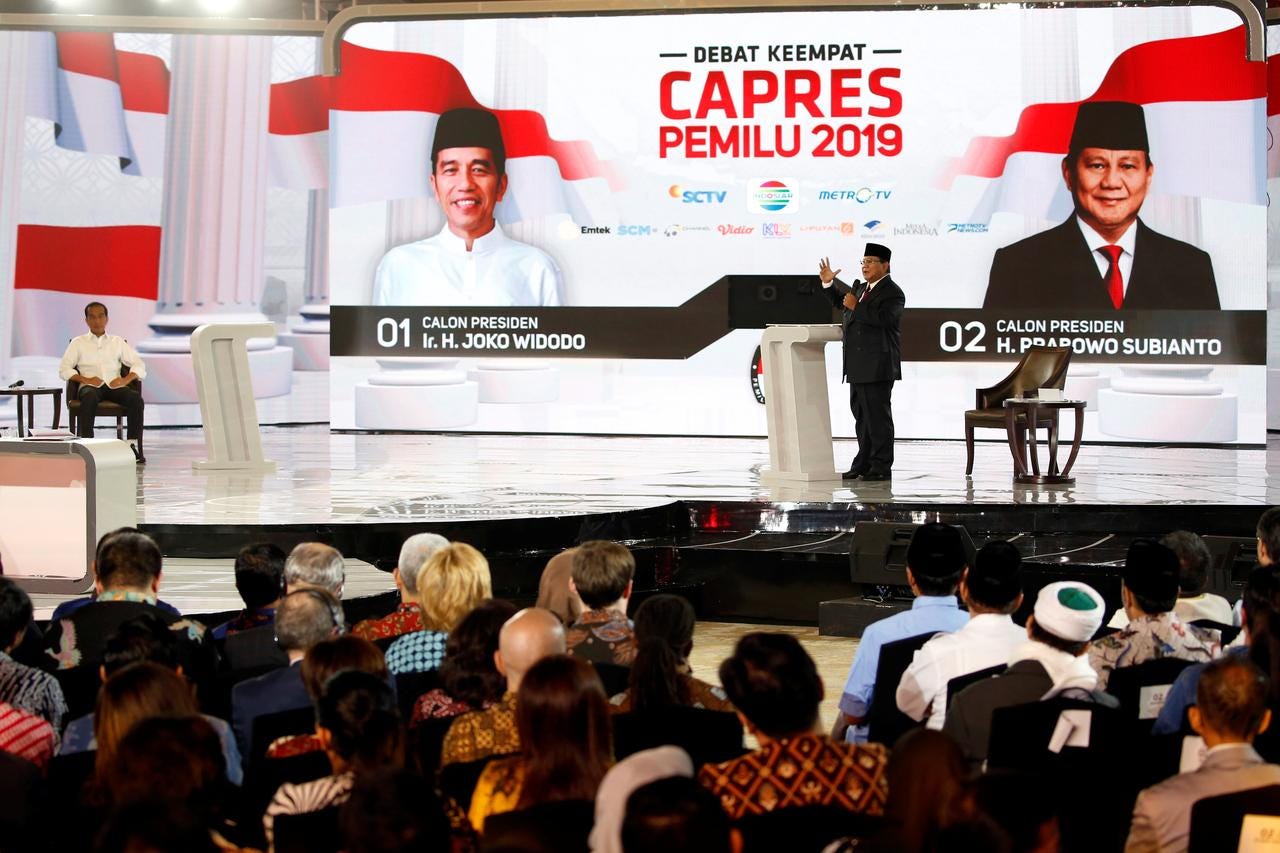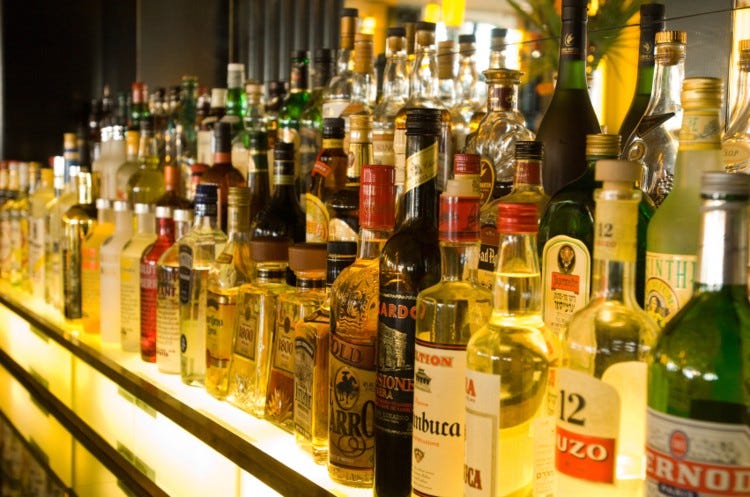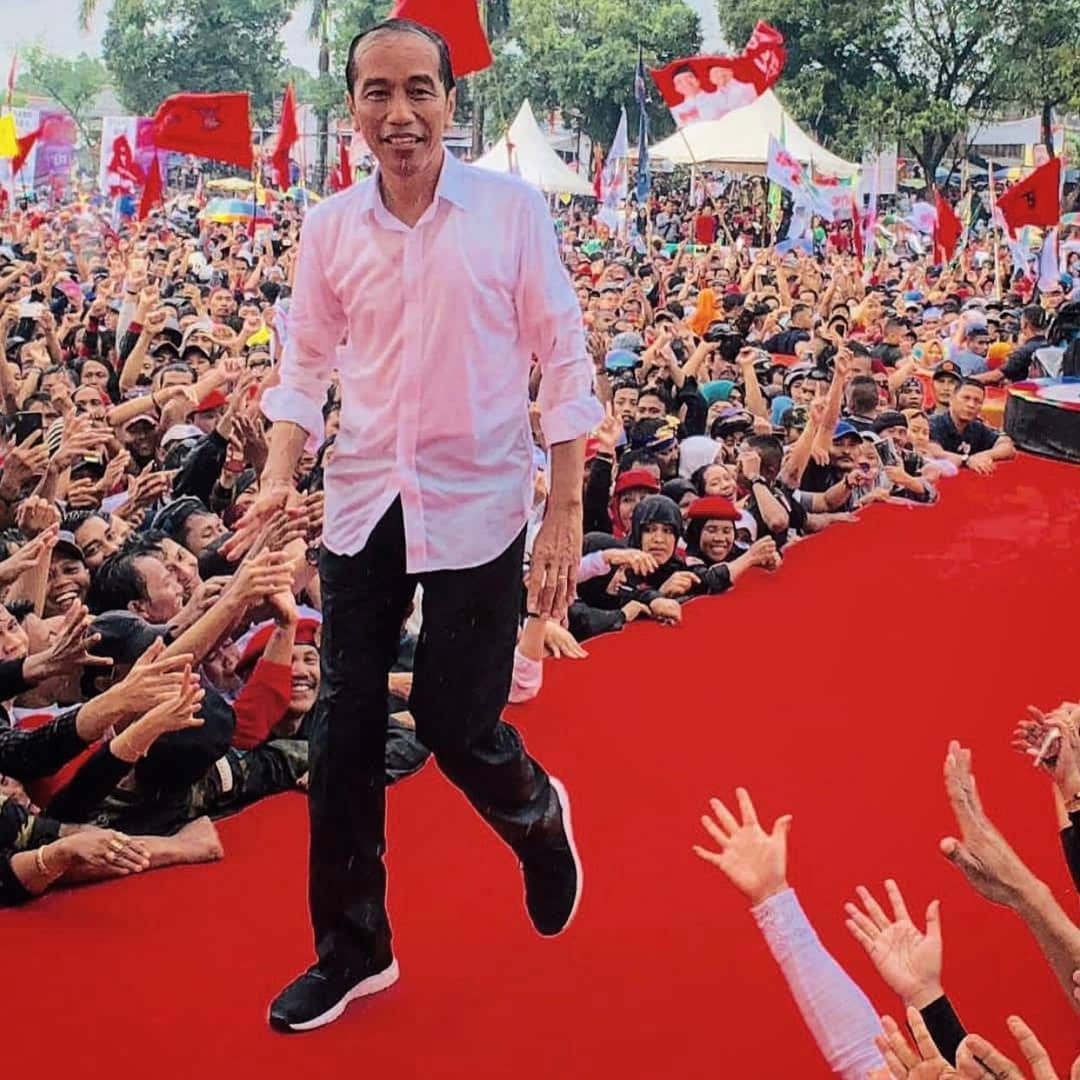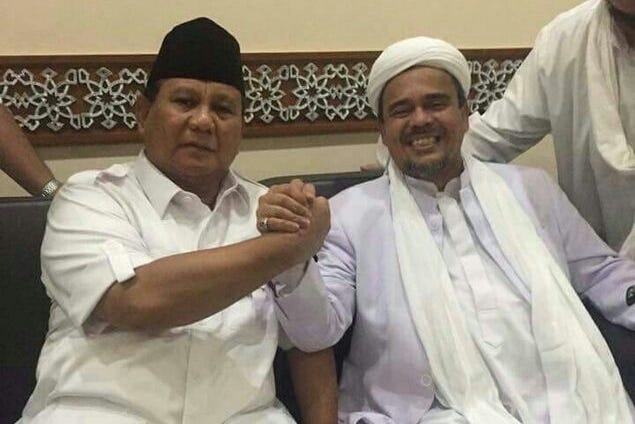Go-Decacorn | Vote fraud foreshadowing | Indonesia Intelligencer (Mar 30 - April 5)

Welcome to this free edition of Indonesia Intelligencer, your concise weekly digest of the most important news and thought-provoking features from the archipelago. We occasionally send out free editions of I.I. like this to show potential readers what this newsletter is all about, but only paid subscribers will receive every week’s newsletter and have full access to our archive.
You can click here to get a free one-month trial subscription to Indonesia Intelligencer so you can start getting the most essential political, business, and cultural news of the week delivered to your inbox every Friday.
Business

In true trade war spirit:
European spirit makers say they’re facing difficulties importing their products to Indonesia amid rising tension over the EU’s refusal to classify Indonesian palm oil as green fuel.
Non-EU spirits, such as tequila, are being approved for import into Indonesia while EU products are not.
Indonesia has warned of a possible trade war with the EU in recent weeks and has threatened to quit the Paris Climate Agreement over the palm oil dispute (see last week’s newsletter).
10 times a unicorn:
Indonesia’s Go-Jek, one of the country’s four startup unicorns, has been elevated to decacorn status as its valuation has reached US$10 billion, according to a study by research institution CB Insights.
This makes Go-Jek the first decacorn in the country and the world’s 19th-most valuable startup. Regionally, it lags just behind Singapore-based competitor Grab, which is valued at US$11 billion.
Manageable fiscal deficit: The Finance Ministry says it’s confident of maintaining the government’s 1.84% fiscal deficit as targeted in the budget despite tax collections trailing forecasts this year.
Opportunities out east: President Joko Widodo has launched three special economic zones (SEZs) across 2,200 hectares of land in the eastern part of Indonesia to spur economic growth in less-developed areas. The government aims to raise US$7.7 billion in investments and create 120,000 jobs by 2025.
Garuda’s so-so profits: Flag carrier Garuda Indonesia is slowly ascending into the green as the company posted a US$809,846 profit in 2018. In 2017, Garuda suffered a loss of US$216.58 million.
Hardly a stretch: Indonesia, along with Malaysia and Thailand, has agreed to cut down on rubber exports for the next four months to help stabilize the falling global price of the commodity. Indonesia says it will cut rubber exports by 98,160 tons and expects the domestic market to be able to absorb the supply.
Cloudy forecast:
Amazon has announced that it will build its first cloud region in Indonesia, comprised of three data centers in Jakarta, which should be operational by early 2022.
Amazon, which holds the highest cloud computing market share worldwide, joins Google and AliBaba in establishing data centers in Indonesia to take advantage of the country’s blossoming start-up scene.
Cell service boost: The IT Ministry has completed the re-farming of 800 and 900 hertz cellular frequencies, bringing LTE connection to areas not previously covered and strengthening it in existing regions. The re-farming affects Telkomsel and Indosat Ooredoo users.
SEA car export hub:
Indonesia is aiming to export 450,000 cars in 2019, an increase from 346,000 last year, which brought in US$4.78 billion profit for the automotive industry.
The Trade Ministry says Indonesia has become a production base for MPVs and trucks and is now aiming to be a supplier of sedans and SUVs in order to become the hub of the automotive industry in Southeast Asia.
Recommended reads
What is holding Indonesia’s economy back? (Al Jazeera)
While Indonesia is well on its way to becoming a $2 trillion economy in the next five years, a population of more than 250 million people strung across more than 17,000 islands is being held back by - among other things - poor infrastructure.
Rising internet penetration rates In Indonesia are paving the way for fintech applications (Business Times):
Indonesia has a huge number of unbanked individuals and businesses but the country's increasing internet penetration rates are being viewed by analysts as a way for financial technology (fintech) to become a norm.
Politics

Predicting a Jokowin:
The Economist Intelligence Unit released a new report ahead of the April 17 election that predicts a win for incumbent President Joko Widodo based on his support among parties and recent polling (while also noting that such polling is not always reliable).
If the polls are unreliable, they would appear to be unreliable in the same way. Surveys conducted from mid-to-late March by Survey Indikator, LSI Denny JA, CSIS, Vox Populi and New Indonesia Research & Consulting all consistently show Jokowi-Ma’ruf with a 15-20% lead over Prabowo-Sandiaga with less than two weeks to the polls.
Fraud claims foreshadowed
Prabowo’s camp claims there are widespread irregularities involving the data of millions of registered voters, claims General Elections Commission (KPU) says it is investigating.
Many of Prabowo’s allies have begun casting doubt on the upcoming election’s integrity, seemingly to lay the groundwork for legal challenges after the results come in.
While a Constitutional Court challenge to a Prabowo loss seems likely (considering he contested the election outcome to the court in 2014 as well), some of the Gerindra chief’s surrogates have warned of potential appeals to powers outside the country’s judicial system.
Prabowo’s brother, Hashim Djojohadikusumo, said they were ready to bring an election fraud case to the UN’s International Court of Justice, while PAN Advisory Board Chairman Amien Rais, came under fire for saying he didn’t trust the Constitutional Court and that he’d use “people power” to bring protesters out to the streets to contest the results.
A fiery fourth debate
Jokowi and Prabowo faced off on Saturday for the the final presidential debate of the season, this one focusing on defense, security, governance and foreign policy.
Observers generally said the debate lacked in policy substance but the lively sparring between the two candidates was nonetheless informative. Many found Prabowo’s aggressive attacks on Jokowi to be overreaching and unpersuasive, allowing the incumbent to come out of the night looking more presidential in comparison.
And then there were eight?:
On the Parliamentary front, a new poll by Indikator Politik indicates that only 8 of the 16 political parties contesting seats on April 17 will reach the 4% electoral threshold needed to earn parliamentary representation.
Those parties are PDI-P (24.2%), Gerindra (11.7%), Golkar (11.5%), PKB (8.8%), Demokrat (8.7%), PKS (6.0%), Nasdem (5.7%) and PPP (4.9%).
KPK busts alleged vote-buying scheme: Last week, the Corruption Eradication Commission (KPK) arrested House of Representatives member and Golkar Party cadre Bowo Sidik Pangarso on suspicion of taking bribe money that was meant to fund vote-buying efforts ahead of the election. Investigators confiscated 84 boxes filled with cash-stuffed envelopes amounting to over half-a-million dollars.
Recommended reads
Frustrated Reform? What lies beyond the April elections in Indonesia (Economist Intelligence Unit)
Joko Widodo (known as Jokowi) is the favourite to win the April 17th presidential elections in Indonesia. His opponent, Prabowo Subianto of the Great Indonesia Movement Party (Gerindra), lost to Jokowi in the 2014 election, but is contesting the latest polls with vigour. Prabowo, a former three-star general, has harboured presidential ambitions for many years and has established himself as a senior member of the People’s Representative Council (DPR, the legislature). In 2014, he lost by a margin of 6.3 percentage points – a result he vehemently contested at the time. For his latest run, he has positioned himself differently, taming the military gusto in his rhetoric. Meanwhile, Jokowi’s task in securing the voters’ support on this occasion has been made more difficult by the fact that he is no longer a newcomer pressing for reform. As the incumbent, he will be assessed not just on his performance in office, but also on the promises that he has failed to keep.
Joko Widodo: how 'Indonesia's Obama' failed to live up to the hype (The Guardian)
Fast forward five years and Jokowi and Prabowo will again compete for the presidency of the world’s third-largest democracy, on 17 April, but this time the mood is vastly different.
With the rights of LGBT and some religious minorities plummeting, a series of arrests raising alarm bells over freedom of expression, questions about the neutrality of the police and plans for military encroachment on civil space, the notion that Jokowi is a paean of democratic progress has been steadily undermined.
Generational shift shakes Indonesia’s election landscape (Asia Times)
Although the centrist Democrats are nominally aligned with the opposition camp, there is no love lost between Prabowo and Yudhoyono. Even before his wife’s illness, the ex-president did virtually nothing to help the Prabowo campaign.
Only this week, Prabowo’s brother, Hashim Djojohadikusumo, left the Democrats off the list of Cabinet posts promised to its two other opposition partners, Justice and Prosperity (PKS) and National Mandate (PAN), if Prabowo wins the April 17 election, as unlikely as that now appears.
Indonesia’s elections in the periphery: a view from Maluku (New Mandala)
This article explores the grassroots repercussions of Indonesia’s national elections through an extensive account of the campaign in Maluku, an archipelagic province of 1.7 million inhabitants (among them 1.2 million voters) in the country’s east. Drawing from interviews with candidates and voters in Ambon, Tanimbar, Buru and Banda, I sketch out the presidential election in the province, analyse its relationship with the legislative ballots, and take a close look at the patterns of district-level elections as well as the issues dominating them. In observing the relationships between local communities and political actors, and between those local leaders and national state and party elites, I argue that the entrenched character of political competition at the local level is one of the key factors that would mitigate against attempts to re-establish the kind of centralised authoritarian system that existed during the New Order.
Oligarchs, money and religion: the Indonesian elections (Indonesia at Melbourne)
It is ironic, to put it mildly, that Indonesian democracy has become too expensive for the one-time son in law of Soeharto, the president whose family accumulated billions of dollars during three decades in power. For Prabowo, there is an incentive to push for a less unwieldy democratic system, where alliances are fluid and shift easily. Thus, he has indicated a preference in the past for the elimination of direct elections for local heads of government and for the presidency itself, which many observers fear would be steps toward more authoritarianism.
The mind-boggling challenge of Indonesia’s election logistics (The Interpreter)
How do you organise free and fair elections in a sprawling developing country beset by political corruption, bureaucratic incompetence and organisational inefficiency?
For Indonesia – and its 193 million voters – the answer lies in the vast number of polling stations, the use of a metal nail (not a pen or a machine) for voting, 1.6 million bottles of halal certified ink and the practice of counting votes in public.
Other News and Notable Features

Boeing takes responsibility
The world’s largest airplane manufacturer today officially apologized and accepted responsibility for two fatal crashes involving their 737 MAX 8 model, namely Lion Air flight JT-610 in October 2018 and Ethiopia Airlines flight 302 earlier this month, acknowledging how the malfunctioning of their planes’ Maneuvering Characteristics Augmentation Systems (MCAS) contributed to both crashes.
More than 30 relatives of those who died in the Lion Air crash have sued Boeing in US courts. It is not yet clear how Boeing’s new position will impact their cases.
Indonesians looking up: New survey data by Pew Research group shows Indonesians are generally optimistic about the country, with two-thirds of respondents saying they were satisfied with the way democracy is working in Indonesia and 65% saying they had a positive outlook on the economy.
Komodo closed, no?
Authorities are considering closing tourist hotspot Komodo Island to visitors for one year over concerns about the dwindling Komodo dragon population as well as poachers.
Talk of closing the island was put in the spotlight late last month after police in East Java arrested five people accused of smuggling Komodo dragons. Authorities suspect they had already sold 41 of the protected lizards.
Recommended reads
Between Two Boeing Crashes, Days of Silence and Mistrust (New York Times)
Interviews with government officials, aviation experts and company executives portray an environment in which Lion Air, Boeing, subcontractors, investigators and regulators erected walls to sharing information that seemed designed more for self-preservation than finding the truth about a crash that claimed 189 lives.
As each party involved in the crash focused on passing the blame, rather than trading information about the Max’s new anti-stall system or disseminating important details about the investigation, airlines, passengers and even Indonesian regulators were left in the dark.
Five years of hard work to make one 'non-story' (Strategic Review)
So it’s on. Another election “coming soon” to Australia, and once again refugees are on the front pages. In the last week, nearly every Australian TV, radio and television network has visited Indonesia looking for a story. To their surprise, they found something that didn’t fit their pre-conceived narrative. Instead of depressed and isolated refugees, they found a strong, connected and educated community. Instead of refugees pooling at the borders, they found a community determined to wait for an official chance to resettle.
To get to this point it took five years of hard work by the refugee community in Indonesia, but when I read the media’s stories, it was my turn to be surprised. In an effort to find something, anything, that suited their Australian-centric narrative, the Australian media had looked straight past the many remarkable and unprecedented refugee-led initiatives in Indonesia.
Indonesia’s Football Fever (Al Jazeera): 101 East follows Indonesia’s die-hard football fans as violence threatens to shut down an entire league.
Top Coconuts News



